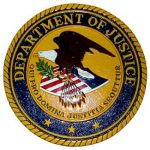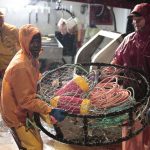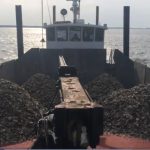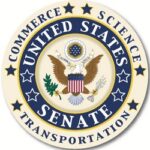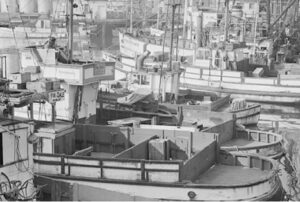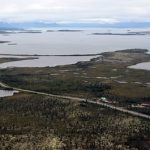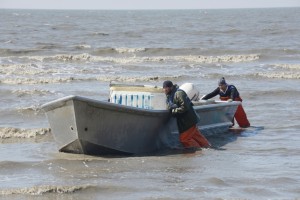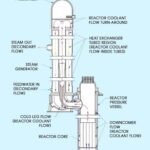Tag Archives: Sen. Jeanne Shaheen
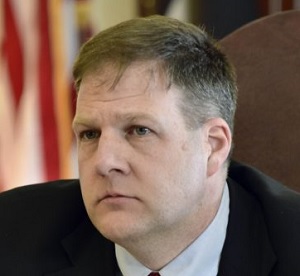
NH to join Maine in challenging North Atlantic right whale fishing regulations
Gov. Chris Sununu announced New Hampshire would join the state of Maine in federal court to appeal a Biden administration regulation to protect the endangered north Atlantic right whales that he said would cripple the region’s lobster industry. A U.S. District Court judge last month upheld a National Marine Fisheries Services (NMFS) regulation environmental groups sought in response to the whale population, estimated to be around 340 animals in the Atlantic waters of the U.S. and Canada. “This ruling, if upheld, would devastate New England’s lobster industry with restrictive regulations brought on by the federal government,” Sununu said in a statement. >click to read< 08:52

Shaheen, Collins Introduce Bipartisan Bill to Help Lobster Industry Afford New Gear
U.S. Senators Jeanne Shaheen (D-NH) and Susan Collins (R-ME) introduced bipartisan legislation to support lobstermen by creating a grant program to help them comply with federal regulations that require a change in fishing gear, which reduces the risk of entanglement for highly endangered North Atlantic right whales. The Stewarding Atlantic Fisheries Ecosystems by Supporting Economic Assistance and Sustainability (SAFE SEAS) Act of 2022 will help lobstermen with the financial burden of this transition in gear – which is expected to cost the industry tens of millions of dollars each year. >click to read< 10:20
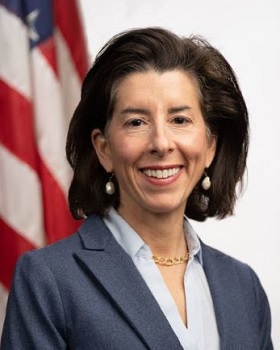
Collins criticizes onerous, unfair regulations on lobster industry
At a Senate Appropriations Subcommittee hearing, U.S. Senator Susan Collins questioned Commerce Secretary Gina Raimondo about several important issues facing the State of Maine, including the unfair right whale rule as well as the implementation of the bipartisan infrastructure bill’s broadband provisions to expand high-speed Internet. Senator Collins has been steadfastly opposed to NOAA’s flawed Atlantic Large Whale Take Reduction Rule, which is harming Maine’s lobster industry without meaningfully protecting whales. Even though NOAA’s own data show Maine’s lobster industry has never been linked to the death of a right whale, NOAA proceeded to close more than 950 square miles of productive ocean area to lobster fishing this winter. Video, >click to read< 18:29
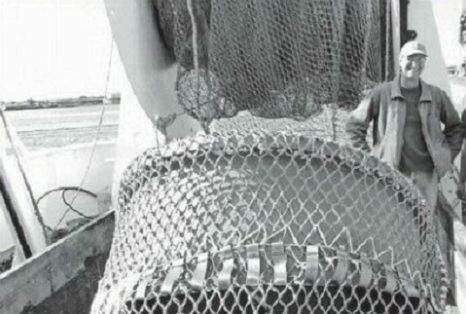
Jim Kendall – Finding Common Ground
With regard to the letter from Sam Novello posted on Fisherynation.com, Finding Common Ground off to a Bad Start, he very eloquently laid out some of the faults, errors, and out and out incompetence of the Northeast Fisheries Science Center with respect to their continued mismanagement of the Northeast fisheries stock assessments. I know from past work and associations with the NEFSC that this has been going on for so long that they likely now believe their own Mantra about their science being the best (and only way) in which to compile the NE groundfish stock assessment. Unfortunately groundfish is not their only problematic stock assessment. >click to read< 16:32
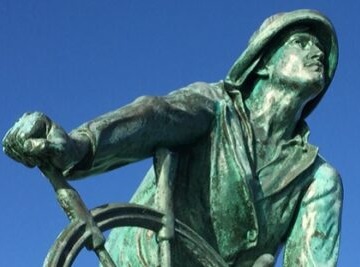
Finding Common Ground Off to a bad start
The opinion piece “Finding common ground on fisheries data”, reflects the biggest impediment to solving the problems it addresses – lots of false assumptions. First and foremost is blaming reductions in survey fish stocks on “overfishing”. Yes, overfishing did occur when massive, mostly foreign, commercial fishing operations scooped up fish stocks indiscriminately, often purging the bottom of everything needed to sustain acquatic life. But this was not done by the small boats of the New England fishing communities, which now, after thirty years of draconian restrictions, are no longer capable of catching enough fish to sustain their boats and their families — never mind “overfishing”. >click to read<, Capt. Salvatore “Sam” Novello, Gloucester, Mass. 08:30
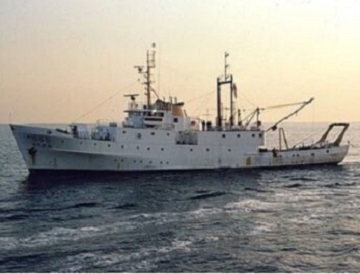
Groundfish Trawl Task Force – Finding common ground on fisheries data
Building consensus between commercial fishermen, conservationists and marine regulators is no easy task. But a long, patient effort led by Congressman Seth Moulton’s office seems to be making progress,,, For years, NOAA has relied on data from two research trawlers. The Albatross IV was used between 1963 and 2008, and the Bigelow since then. NOAA currently combines data from both vessels when making regulatory decisions. That is despite the often-flawed data supplied by the Albatross IV over the years. The Albatross IV was at the center of the “Trawlgate” controversy of the early 2000s, when NOAA scientists had to concede the trawler used the wrong nets, likely missing hundreds of thousands of fish. Yet regulators stood by that data to set low catch limits based on the admittedly flawed numbers. >click to read< 10:25
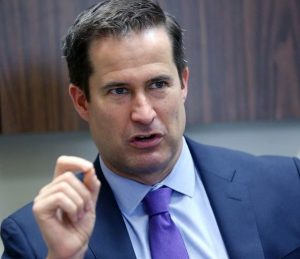
Moulton’s Trawl Task Force wins $500K to count groundfish
“When I took office, I was told I had to make a choice: stand with the fishermen or the environmentalists. I thought that was crazy because both want, and fishermen need a sustainable fishery. So instead, we rallied both groups around getting better science, and that is exactly what this historic partnership has produced,” Moulton said in a prepared statement. “This work will protect the livelihoods of thousands of people, it will protect our ocean, and it will preserve New England’s identity as a place where people can make a living fishing.” >click to read< 08:44
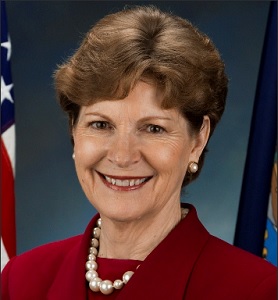
Fishing Money found for at-sea monitors
As part of a $1.4 trillion spending package, the U.S. Senate passed a $79.4 billion appropriations bill that includes another $10.3 million for NOAA Fisheries — once again secured by New Hampshire Sen. Jeanne Shaheen — to fully fund at-sea monitoring in the Northeast groundfish fishery for the 2020 fishing season that begins May 1. When President Donald Trump signed the bill into law the next day, the mandated shouldering of the full financial weight of at-sea monitoring by the groundfish industry — at a cost of up to $700 per day per vessel — had been deferred for at least another fishing season. >click to read< 12:24
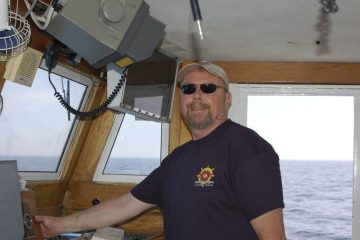
NOAA/NMFS to foot at-sea monitoring costs – Thank You Senator Shaheen!
Timing may not be everything but it sure counts for a lot. Just ask New Hampshire groundfisherman David Goethel. Goethel, who had persevered through cascading years of escalating regulation, slashed fishing quotas, a failed lawsuit and, more recently, the prospect of paying the full cost of at-sea monitoring, was ready to get out of commercial groundfishing. “I had planned to sell my boat this summer,” Goethel said Wednesday, referring to his 44-foot, Hampton, New Hampshire-ported Ellen Diane. “I was done.” Last week, following a full year of working behind the scenes with U.S. Sen. Jeanne Shaheen of New Hampshire, Goethel got the news he and other groundfishermen wanted to hear: >click to read<08:24
New England fishermen fear looming costs for at-sea monitors
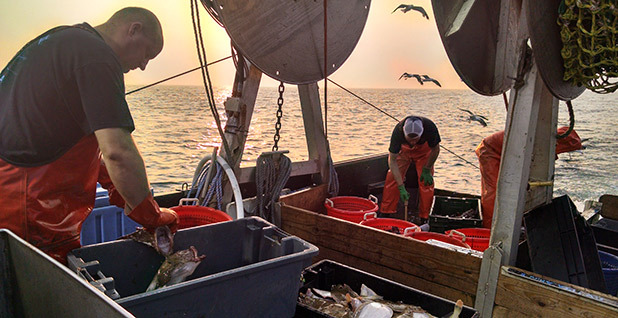 New England fishermen, running out of time before the federal government hands them the cost of monitoring the industry at sea, say emergency intervention is needed or many of them will be out of business. Several New England congressmen said they are looking for ways to reduce the burden for fishermen. U.S. Sen. Kelly Ayotte, a New Hampshire Republican, has submitted a bill to terminate the independent, third-party monitoring program unless it is fully funded by NOAA. She and., requested an investigation of the monitoring program,,, Read the rest here 08:02
New England fishermen, running out of time before the federal government hands them the cost of monitoring the industry at sea, say emergency intervention is needed or many of them will be out of business. Several New England congressmen said they are looking for ways to reduce the burden for fishermen. U.S. Sen. Kelly Ayotte, a New Hampshire Republican, has submitted a bill to terminate the independent, third-party monitoring program unless it is fully funded by NOAA. She and., requested an investigation of the monitoring program,,, Read the rest here 08:02
Shaheen joins Portsmouth, NH fishermen to highlight their challenges

PORTSMOUTH — Sen. Jeanne Shaheen, D-NH, was at the commercial fishing pier on Thursday to hear about the many challenges the local fishing industry faces, how Congress can help, and what the fishermen are doing to try and save themselves. more@nhunionleader Video here@wmur

































